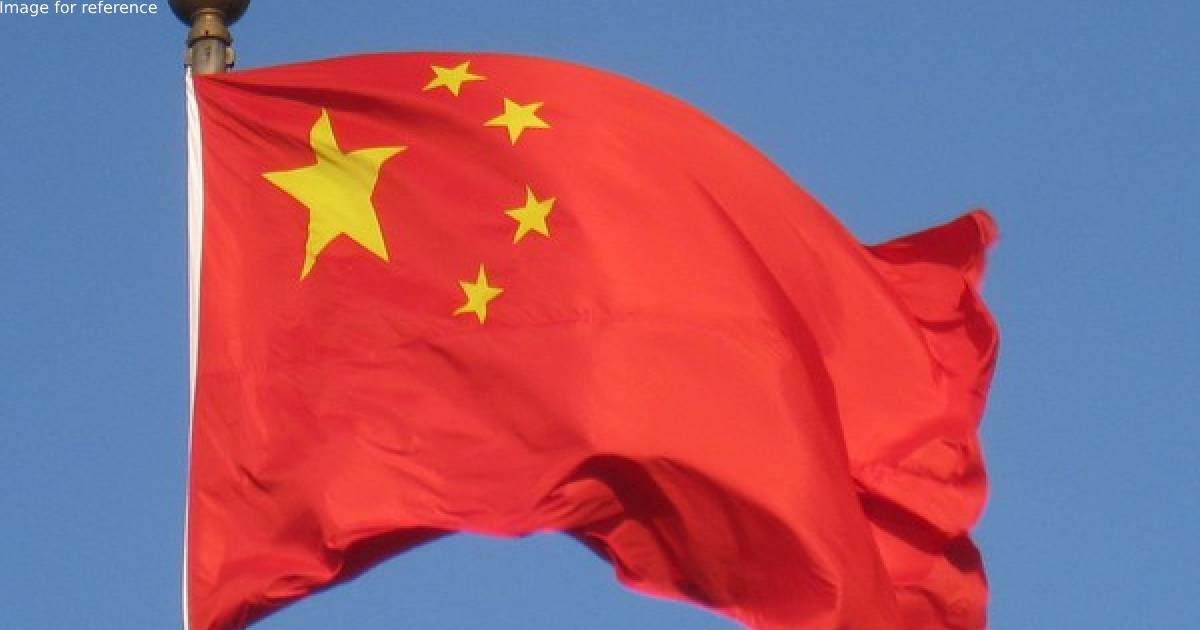Latest News
Economic woes deepen as Xi makes China more insular

Hong Kong: There is no doubt that China's economic headwinds are stiffening. Some even say its economy will eventually tank, so many jumped to wrong conclusions when a video clip showing People's Liberation Army (PLA) armoured vehicles was linked to a banking crisis in the province of Henan.
It was claimed that the PLA was putting tanks on the streets of Zhengzhou, Henan's capital, on 17 July to protect bank branches from angry investors who had had their accounts frozen. In that case, the Chinese authorities would have been proactively deploying the military ahead of a protest, rather than at the end of it, as occurred in Tiananmen Square in 1989. The purported event sparked such tweets as this one that were shared tens of thousands of times. "Tanks are being put on the streets in China to protect banks. This is because the Henan branch of the Bank of China declared that people's savings in their branch are now 'investment products' and can't be withdrawn."
However, such claims, eagerly gobbled up by millions of netizens worldwide, were demonstrably false. The PLA's column of armoured vehicles was actually in the coastal city of Rizhao in the eastern province of Shandong, more than 400km from Henan.
Rizhao hosts a PLA Navy Marine Corps facility, but markings on the ZTZ-96A tanks and ZBD-04 infantry fighting vehicles suggested they belonged to the Xuzhou-based 2nd Combined Arms Brigade, 71st Group Army of the Eastern Theater Command. The convoy was part of an annual military exercise.
Despite the false reports, there is no doubt that bank customers had taken to the streets in Zhengzhou. They had opened accounts at six Henan and Anhui rural banks offering relatively high-interest rates, but many could not make withdrawals later after news broke that the head of the banks' parent company was wanted for financial crimes.
Regardless, the police did not take kindly to several hundred irate protestors in Zhengzhou on 12 July, with many interrogated, threatened, and/or beaten up by police and apparent triad members. Allegedly, up to CNY 40 billion (USD6 billion) in deposits has disappeared.
This is just one example of simmering anger in China. Indeed, the middle class of some 400 million Chinese are becoming increasingly rebellious.
In mid-April, for a few hours, before censors regained control, Chinese netizens unleashed their wrath against the authorities for their handling of the COVID-19 outbreak in Shanghai. Indeed, this became the top topic on Weibo.
Additionally, the government banned the use on Weibo of the first line of the Chinese
national anthem - "Stand up! Those who refuse to be slaves" - after people started using the words to vent their frustration about prolonged COVID lockdowns.
Confidence in China's economic well-being has slipped even further because of its "zero tolerance" policy toward COVID-19. In June, more than 30 cities were disrupted by lockdowns that stymied 248 million citizens and 17.5% of China's economic activities.
Foreign outflows from Chinese government bonds hit a record in June, the fifth straight month of selling. Elsewhere, in 2019, gambling revenue in Macau was six times that of Las Vegas. Casinos account for 80% of Macau's income and a third of its employment yet for 2022 Macau's gambling revenue trails that of Las Vegas.
Willy Wo-Lap Lam, a Senior Fellow at The Jamestown Foundation think-tank in the USA, assessed: "The relentless cascade of bad economic news in China has not only cast doubt on the governance ability of the Xi Jinping leadership but has also called into question the long-term viability of the Chinese economic model, which stresses maintaining party-state control of the market and limiting international access to sensitive sectors such as finance."
Xi, both a devout Maoist and a control freak, has centralized all authority upon his own demigod personage. However, despite the orchestrated propaganda machine of the Chinese Communist Party (CCP), Xi does have feet of clay. And things will likely worsen after Xi - who is, after all, the "core of the CCP leadership" - is given a third five-year term in office at the 20th Party Congress later this year.
Xi has been forced to give Premier Li Keqiang - who is a political foe of Xi's and has
been largely sidelined for the past nine years - and other central government technocrats more responsibility to perform day-to-day management of the economy. Xi may well be pushed into making further concessions at the aforementioned party congress, including appointing more faction members to the Central Committee and Politburo.
Xi heads China's two highest economic decision-making organs (the Central Finance and Economic Commission, and the Central Commission on Comprehensively Deepening Reforms). However, his delegation of authority to Li and State Council bureaucrats indicates that the infallible "Chairman of Everything" may have belatedly recognized that he is incompetent in economic matters.
Just how serious is China's economic woe? In the second quarter of 2022, its economy grew just 0.4%. Even though it is difficult to believe any official figures released by Beijing, such a number still represents the second-worst growth in the past 30 years.
China has already announced that GDP will grow 5.5% this year, so Xi has ordered
officials to make sure that this occurs. Most Western analysts predict Chinese annual
GDP growth to be more like 3%.
Things are looking very grim. More than 460,000 Chinese businesses - most of them small and medium enterprises - closed their doors in the first quarter of 2022. In June, unemployment among the 16-24-year-old age bracket rose to a record 19.3%.
The HSBC has become the first foreign lender to permit the CCP to install a party committee in its China operations. Attempting to navigate a route between Chinese and Western requirements, the London-headquartered bank has caved in to Chinese pressure, and others will probably follow suit. This will give the CCP more leverage over the operations of foreign companies.
The real estate sector is also reeling. Huge developer conglomerates like Evergrande and Shimao have declared insolvency. One impact is that growing numbers of home buyers are refusing to pay their mortgages for unfinished apartments. Their aggregate refusals now total around USD300 billion, denying banks an important source of funds.
A staggering 500 million square meters of housing sits unfinished since developers have insufficient funds to complete buildings. Citi predicted that banks would forfeit USD4.6 billion on interest income if China gives homebuyers a temporary mortgage payment holiday.
China's predicament has been worsened by Xi's "no limits" partnership with Russia,
marked by unequivocal support for Moscow's invasion of Ukraine. With the threat of
countries like the USA imposing secondary sanctions against Chinese companies, some multinationals are accelerating plans to move production bases to alternative countries like Vietnam or Bangladesh.
Lam of The Jamestown Foundation added: "At present, both central and regional
government coffers are running low on funds. In the first quarter of this year, China's
total social debt (including borrowings by administrations, enterprises, and households) increased by USD2.5 trillion year on year. Runs on both gigantic state-owned banks, as well as county-level rural banks (which function like 'financial co-ops' that theoretically restrict customers to local inhabitants), have taken place in Henan, Anhui, and Liaoning provinces. Runs on state-owned banks have even occurred in prosperous cities such as Shenzhen and Shanghai."
One rare positive note has been the rebound of exports. In June, Chinese exports grew 17.1% year on year to USD 331.3 billion.
The CCP saw some healthy statistics in 2021 too, with membership growing 3.7% to
reach 96.7 million. This equates to nearly 7% of China's population.
China's solution is more of the same. Lam noted: "...The magic bullet they have come up with is nothing new: augmenting state fiscal injections into infrastructure development in order to jack up the GDP growth rate. In April, the State Council announced that Beijing would roll out an investment stimulus worth USD2.2 trillion to boost infrastructure building.
Despite the multiplier effects of individual state stimulus injections, the immediate result seems to be regional governments accumulating more debt rather than a palpable reinvigoration of overall business activities. These measures do not address the issues of greatest concern to countries and multinationals with major commercial stakes in China, who are increasingly apprehensive over the long-term fiscal health of the entire country as well as over-leveraged enterprises. In order to save money, Beijing has cut down on social-welfare benefits, extended the age of retirement, and obliged managers and workers to contribute more to pension funds."
Some banks have adopted daily withdrawal limits or set quotas on how many customers they serve each day, large numbers of automatic teller machines have stopped working, and foreign currency is in short supply. Immigration and police have advised citizens not to leave China without a valid reason, which is one way to stop foreign exchange from fleeing the country.
When COVID-19 was rocketing around the rest of the world, China painted itself as a safe haven thanks to Xi's wise policies and the efficiency of the CCP apparatus. However, many Chinese have had enough and they simply want to escape. A trending phrase in China is "run xue", or "run philosophy", which is code for emigration from China. Ongoing harsh policies and anticipated years of unremitting lockdowns are persuading many that the grass is greener outside the CCP's red realm.
According to one source, an estimated 10,000 wealthy Chinese citizens will seek to move USD48 billion out of China this year. China is perhaps no longer the utopia that the CCP claims it to be.
COVID-19 has to some degree helped China to return to its inward-looking moat-like mentality. It has severely restricted international travel. For example, on 10 May the National Immigration Administration called for "strict implementation" of existing policies barring "non-essential" outbound travel. The government only issued 2% as many passports as normal in the first half of 2021.
This introversion is beneficial to Xi, for it means the people will not be so exposed to
"corrosive" foreign influences. Instead, they will be subjected to an unending barrage of CCP-inspired propaganda. He does not want his people to engage with the world, but instead to join his struggle against external forces.
China is gradually becoming more isolationist, something borne out by statistics. From 2010-20, the number of foreigners living in Shanghai fell by 20% to 163,000, and expatriates dropped dramatically by 40% in Beijing to 63,000. China is intent on keeping out Western influences.
As China grows in power, it is seeking to create and engineer an international order in its own image. That order is authoritarian and hierarchal, centered upon China as the heart of a new "Middle Kingdom".
Xi, with recent victory laps around repressed Hong Kong and Xinjiang, is perhaps hoping that fanning the flames of nationalism will help divert the populace's attention away from his economic failings and their grievances.
Lam warned, "If fiscal indicators continue to deteriorate, it is possible that the supreme leader could double down on Beijing's policy of 'brandishing the sword' over sovereignty disputes in the South China Sea and the East China Sea. An invasion of Taiwan would allow the CCP not only to divert the attention of a disgruntled public, but would also enable Beijing to declare martial law in order to tamp down the increasingly frequent - and daring - acts of rebellion by Chinese from all backgrounds."
The academic concluded: "Despite the relative likelihood that Xi will be able to rule for five or even ten more years, the supreme leader might be presiding over the inexorable decline of the authoritarian China model, which has now fully exposed the cracks in its armor." (ANI)

.jpg)

.jpg)
.jpg)
.jpg)
.jpg)
.jpg)

.jpg)
.png)
.png)
.png)
.jpg)
.jpg)
.jpg)
.jpg)
.jpg)
.jpg)
.png)

